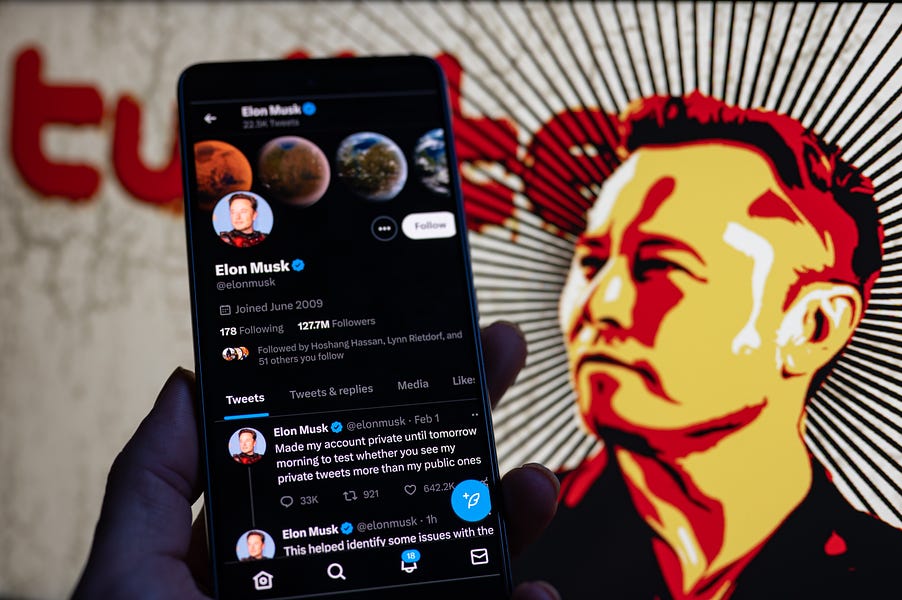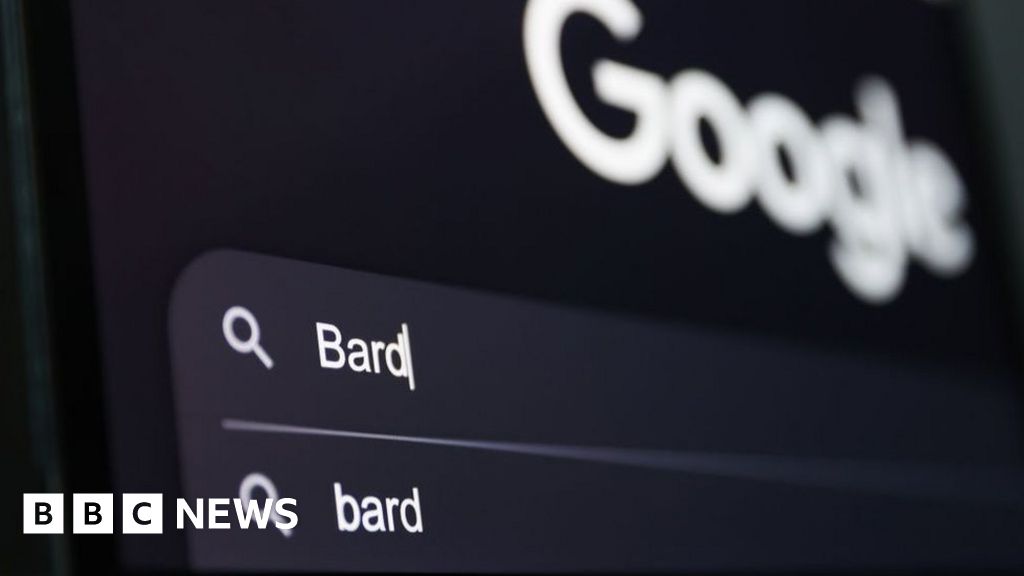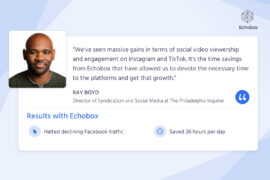In this week’s Roundup: How do you get more impressions on Twitter? Elon Musk has the answer; has Bard changed the world, like, forever? And how will governments regulate this brave new world?
News
One of the problems that the internet’s “town square” shares with its IRL counterpart is that obnoxious, shouty people tend to get the most attention. And when that obnoxious, shouty person owns the town square this problem is only compounded.
Here, however, not satisfied with the level of attention he was getting, the obnoxious, shouty owner has decided to invest in methods of amplifying his own obnoxious, shouty voice – a proprietary PA system, if you will.
According to Zoë Schiffer and Casey Newton at The Platformer, Elon Musk has been terribly displeased that more people aren’t seeing his tweets. This led to an emergency meeting with Twitter’s engineers, who were tasked with developing a way of increasing impressions on Musk’s tweets.
As revealed in the article, in the crisis’ immediate aftermath, Twitter’s algorithm boosted Musk’s tweets “by a factor of 1000” which means, as they charmingly write, “his tweets will bypass Twitter’s filters designed to show people the best content possible.”
Alphabet just had $100 billion dumped off its shares, and with a real flair for self-preservation, Google’s marketing department are all too happy to blame its new AI bot, Bard.
As reported by the BBC’s Natalie Sherman, rushing to prove to investors that Microsoft-funded ChatGPT isn’t the only player in town, Google released an ad for its bot, showing it answering a question about what it would tell a child about the James Webb telescope. Unfortunately, its assertion that the telescope produced the first images of a planet beyond our own solar system proved to be false.
Embarrassing, no doubt, but whoever approved that ad without checking the information either dropped the ball or drank the Kool Aid.
Analysis
The era of cheap money is over for the time being, with central banks around the world raising interest rates to keep inflation down. In this article for The Verge, Elizabeth Lopatto asks what this means for Big Tech, that most investment-hungry of businesses.
Unsurprisingly the picture looks most troubling for those companies who have yet to reach profitability or who are relying on external financing to grow at pace.
A whole generation of tech companies has never known an environment where VC money wasn’t as plentiful as water, and if the big names are anything to go by, this could be the era of consolidation.
Bard had a bit of a nightmare. But set aside for a moment the minor detail of chatbots getting basic facts wrong and conceptualize with me for a moment. Where is this all leading?
As Charlie Warzel notes in The Atlantic, if even a fraction of the hype around chatbots turns out to be true, it could represent a paradigm shift in the way in which we interact with information online. And if that happens, what about the ecosystems built around online search?
The events of the past few months certainly seem to signal Big Tech stepping on the gas in the applied-AI arms race. And when the financial imperatives of technological development outpace reasoned consideration of its impact, it’s an uncertain road ahead.
AI
Perhaps the most effective line of defense against this headlong rush into the unknown is competent government regulation. But as Rebecca Klar writes in The Hill, such a thing may be a long way off. (“I think regulators and policymakers don’t have a good understanding of how some of these technologies work,” deadpans Prof. Rayid Ghani from Carnegie Mellon University).
A combination of ignorance and tentativeness around regulating innovation to a standstill mean that policymakers within the US government are unlikely to have a coherent response to the rapid developments in AI technology any time soon.
So far, overarching responses by governmental agencies to regulate AI have been conducted on a voluntary level, promoting best practice without the threat of consequences. As could be expected, those companies who see generative-AI tech as a potential money spinner are keen to keep it that way.

AI, of course, is not just for those looking to cheat on their exams or produce images of dogs in hotdog buns. Indeed AI has potentially revolutionary applications at the frontier between life and death.
The pharmaceutial industry has been using AI to solve some of the most difficult and time-consuming problems they face. As Will Douglas Heaven writes in the MIT Technology Review, a range of companies are using AI technology on vast data sets to do things like match specific drugs to different people, without the need for the long process of in vivo experimentation.
Some companies, for instance are using tissue samples to rapidly test the effectiveness of medication in a lab setting, using AI-powered technology to analyze the results. Still others are using AI to generate models of how different molecules will interact together to speedily produce new compounds.
Rigorously controlled clinical trials are still a neccessity, but these innovations help to susbtantially reduce the trial and error work of normal drug development and could save a lot of lives in the process.



/cdn.vox-cdn.com/uploads/chorus_asset/file/24430702/1246870375.jpg)




